
views
Making Sure the Cage is Safe
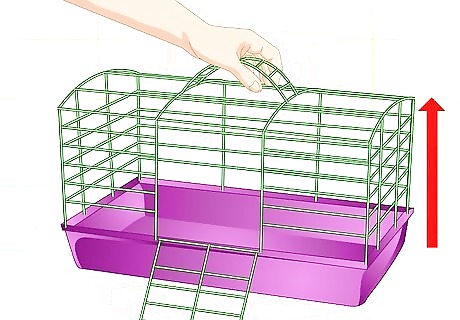
Provide a one-story cage. This will ensure that your hamster will be able to reach everything in his cage easily without too much effort or discomfort.
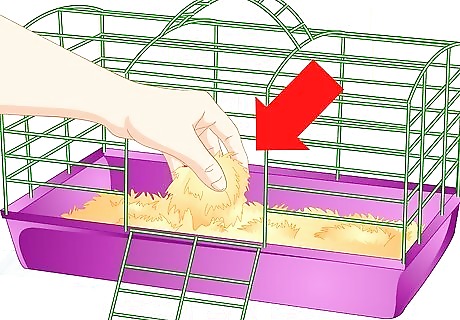
Change the bedding. The bedding in your hamster’s cage should be spot cleaned daily. This is where your hamster’s excrement goes, so you don’t want to keep that around for too long. It’s unsanitary and will cause an odor. Throw out soiled bedding as soon as you see it and replace it with new, clean bedding.
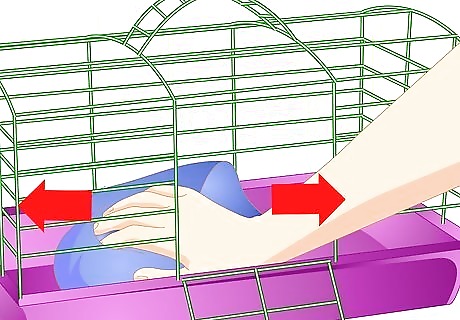
Clean the cage regularly. It is important to keep your hamster’s cage clean, especially in their old age. You should remove the contents of the cage once every two weeks and thoroughly clean everything. Use something mild to clean it with like soap and water, rather than something with harsh cleaning chemicals that might harm your pet. Make sure you put you hamster in a secure location while you are cleaning their cage – like an empty trashcan or a bathtub with the drain stopped.
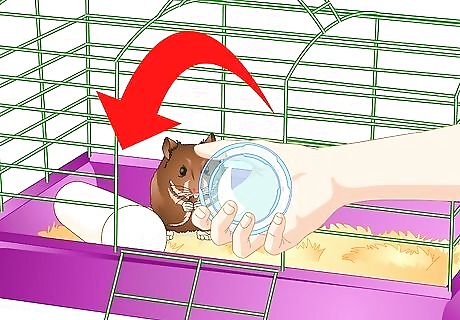
Make sure all toys are easily accessible. Older hamsters are less mobile than younger hamsters. Keep their toys stored in areas of the cage that they can reach without difficulty. If you notice that your hamster isn’t playing with a certain toy anymore, try moving its location to somewhere your hamster can reach it more easily.
Providing Food and Water
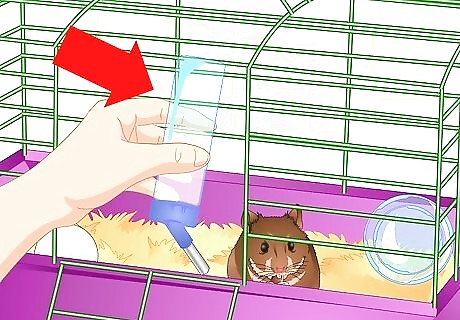
Provide a constant water source. You should give your hamster a stoppered water bottle so that they have continuous access to water. If you put a bowl with water in their cage, they will fill the bowl with bedding and other items. So it is important that you give them a water bottle instead.
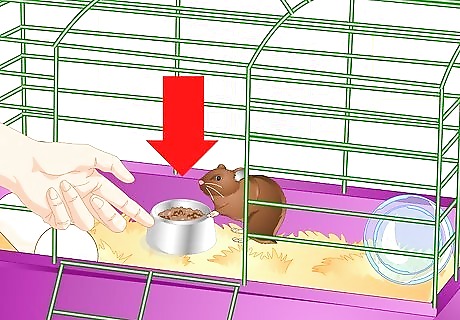
Give them enough food. Make sure your hamster gets a balanced diet – this will lead to increased overall health. There are several different types of food you should consider. Pellets. These are easy to find in any pet store and include lots of different foods all ground together. Mixed seeds/grains. This kind of food gives your pet some variety, but also meets their dietary needs. Snacks. To give your hamster a completely balanced diet, give them some fresh foods every once in a while. Try carrots, grapes, celery, etc. But only give them small portions because they will hoard the leftovers and you don’t want your hamster eating a bunch of rotten food.
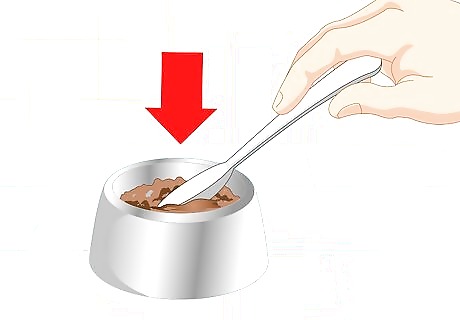
Be mindful of your hamster’s specific restrictions. Make special provisions considering your hamster’s age. For example, if your hamster has lost any teeth because of old age, mush his food together to make it easier for him to eat.
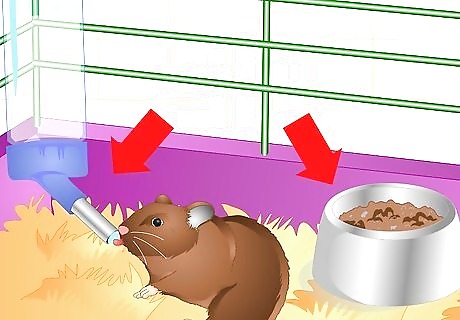
Ensure the food and water are easily accessible. Just like with their toys, you want to make sure that your hamster can easily reach all of their food and water. You don’t want them to be unable to eat because it hurts them to get to their food. Make sure your hamster is eating and drinking regularly to ensure that there are no problems with this.
Helping Your Hamster Exercise
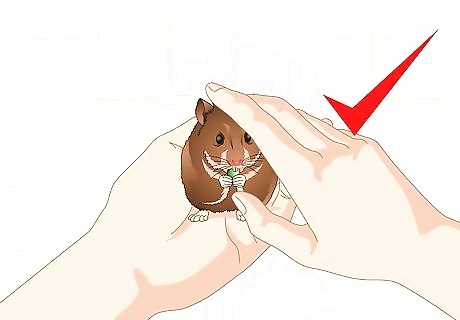
Play with your hamster. Old hamsters need exercise too. It will help them stay strong and healthy at the end of their life. Try to gently play with your hamster, encouraging it to move around and be active.
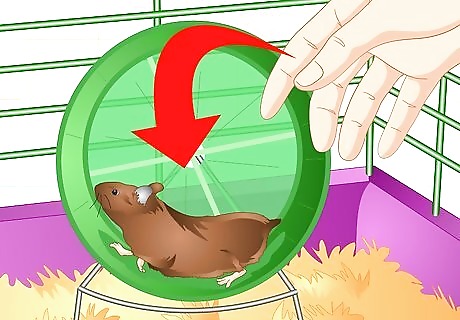
Put your hamster in an exercise wheel. One of the first signs of old age in a hamster is decreased levels of exercise. Make sure your hamster has access to an exercise wheel so that they can use it whenever they want. This is an easy and important way for pet hamsters to remain active even in old age.

Use a hamster ball. If your hamster’s health allows, let them roam around in a hamster ball. These balls provide a great deal of exercise for hamsters because all of their movement is powered by their body. But make sure you keep an eye on your older hamster to make sure they don’t get too tired.
Showing Gentle Love
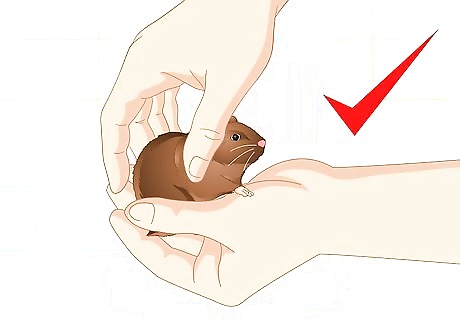
Hold your hamster carefully. All hamsters should be handled carefully, but older hamsters especially so. Just as elderly humans have hurts and aches in their bodies, old hamsters do too. Be gentle when you pick up your hamster and be sure to show extra care when carrying him or placing him back in his cage.
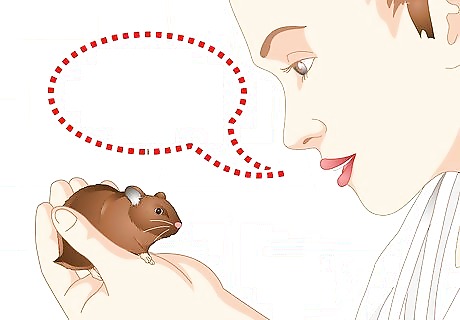
Speak softly. Hamsters are generally sensitive to sound, but older hamsters are even more so and can startle more easily. Avoid making loud, startling sounds around your hamster. Speak in a soft, calming voice when you interact with your hamster. This will soothe him and make him more comfortable.
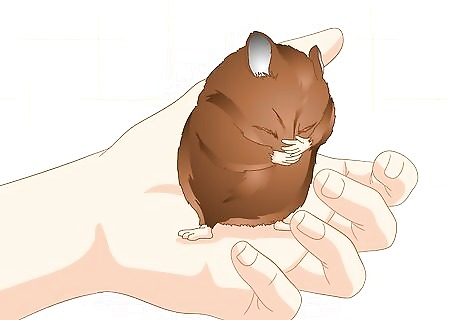
Accept changes in behavior. As hamsters get older, their behavior may change slightly. This is common for most living things. An older hamster might get grumpier or seem less social than it was when it was younger. That’s okay. Just realize that this is a sign of old age, not that your hamster doesn’t like you anymore.
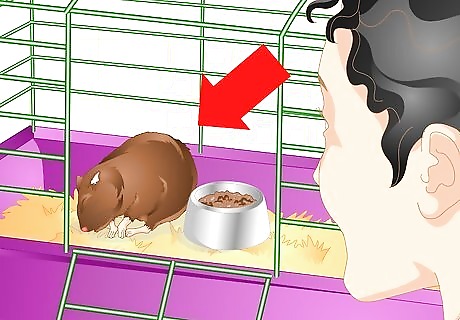
Watch for signs of illness. As your hamster ages, it is important to pay more attention to its health so that you can be prepared if something happens and your hamster needs medical attention. Watch for changes in behavior or physical symptoms. In general, hamsters live for about 3 years. So, once your hamster is about 2 years old, you should start watching for problems. Take your hamster to the vet if you have any questions or concerns.


















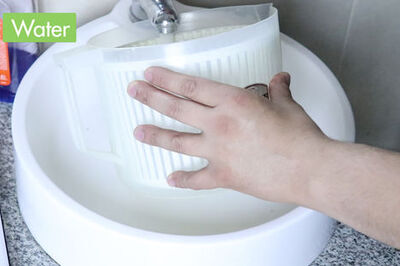

Comments
0 comment